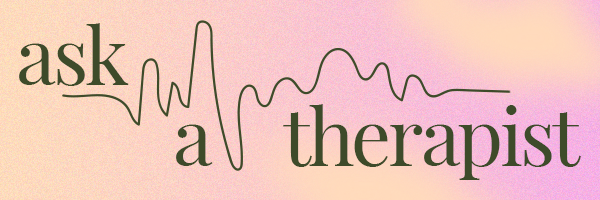Ask A Therapist: How Do I Talk To My Partner About Not Wanting Kids?
Photographed by Emli Bendixen.
Ever wondered what you'd say to a therapist, given the chance? We asked Dr Sheri Jacobson, a retired psychotherapist with over 17 years' clinical experience and the cofounder of Harley Therapy Platform (UK Online Therapists), for advice on the things we worry about in private.
Have a question for a therapist? Submit yours for Sheri.
Question:
I feel pretty sure I don’t want children, for various reasons. This includes my history with female health issues, my mental health and the fact that I feel I can be totally fulfilled with an independent life filled with loved ones, a fun job and so on. I won’t say 100% never, because everything in life is subject to change, but when I hear my peers discuss their desire for kids, it doesn’t resonate with me. My partner of six years always seemed to agree but as we get older and the idea of 'settling down' comes up more, they have suggested that they are more unclear on their feelings. Essentially, they are unsure whether they do or don’t want kids, meaning if they decide they do, it would likely mean us parting ways. Clearly this is too hard for either of us to really deal with so it just simmers away.
AdvertisementADVERTISEMENT
My ultimate fear is that if we don’t put a timeframe on it, this could see us either in our 30s and starting over (devastating) or someone bending for fear of being alone and ultimately resenting the other person forever (also devastating).
What is the best way to handle this? Do we put a date on this decision being made? Is it even healthy to demand that of someone? Can you ever truly know that they won’t wake up and change their mind one day?
Georgina, 27
Answer:
This is such a tricky question because while the situation is not unique, the exact shape of your relationship is so individual. However, there is advice I can give you on approaching difficult conversations and managing expectations.
The first thing I would say is that we need to get over the worry of offending or upsetting people. Good emotional health comes from expressing your feelings and aiming to get your needs met. As long as the way that we broach these subjects is with a degree of sensitivity, it's generally better to bring things out in the open. Chances are they won't go away on their own. In fact, the unexpressed emotions might fester and start manifesting in other ways: from anger to possible infidelities to passive-aggressive behaviour.
You also shouldn't shy away from the conversation because the outcome will be revealing either way. Hopefully, your partner is open to further discussion instead of being very fixed or dismissive but either response is very telling. Better communication is also better for our own health as well as the health of the relationship. Many clients have found (as have I) that being able to speak freely about the things that matter to you generally brings physical benefits. The more you're able to express your thoughts and feelings, the less your body has to carry it. Whether it’s a direct effect or a placebo effect, it’s still an effect.
AdvertisementADVERTISEMENT
So if step one is to do it, instead of avoiding it, you will have to muster up the courage by working out exactly how you feel. Rather than going into a conversation with half-baked thoughts, you should gain clarity by getting in touch with your inner state. This could be through writing or talking to a trusted professional or a close friend to be sure of what you want to communicate.
As for approaching the conversation, you could either do it all in one go or piecemeal. It should ideally be done at a time when both parties are receptive and not too distracted or preoccupied. And crucially, you should approach it in an open-minded and not defensive stance. You need to be open to communicate what is concerning you, while equally willing to engage in a discussion. In practice, that's really, really hard to do so don't feel bad for struggling.
If you're told something you don't want to hear, it can be really difficult. Most partners will want each other to be happy so if someone's communicating that there is potential dissatisfaction in the future, that can put you on edge.
My advice is not always what people want to hear but it's important to bear the discomfort. There may be anxiety and upset, there might be anger or withdrawal, there could be disappointment. But these are all things that can and probably should be tolerated while that person is going through the reaction. It's a normal reaction and both parties ideally should sit tight. But it's very, very tough to do so.
When it comes to processing the conversation, make sure you take your time and don't make forced decisions. There's a reason people say 'sleep on it'. If possible, consider relaxation methods and mindfulness exercises as well as good old-fashioned rest. This will all signal to the body that you're not in immediate danger so your anxiety levels will go down and you'll have more access to the rational part of your brain. It often feels counterintuitive because we feel it's important therefore it requires haste. But if we can actually slow down, then we are more likely to make better informed decisions. Good luck.
AdvertisementADVERTISEMENT







